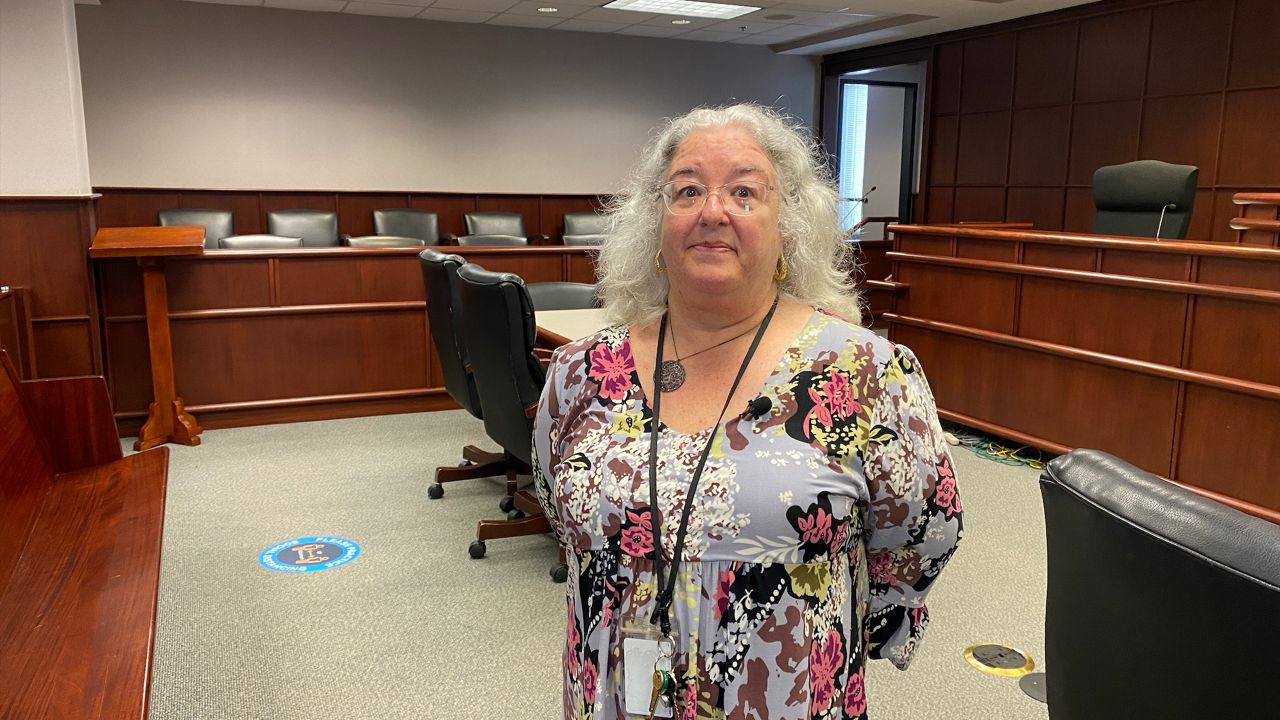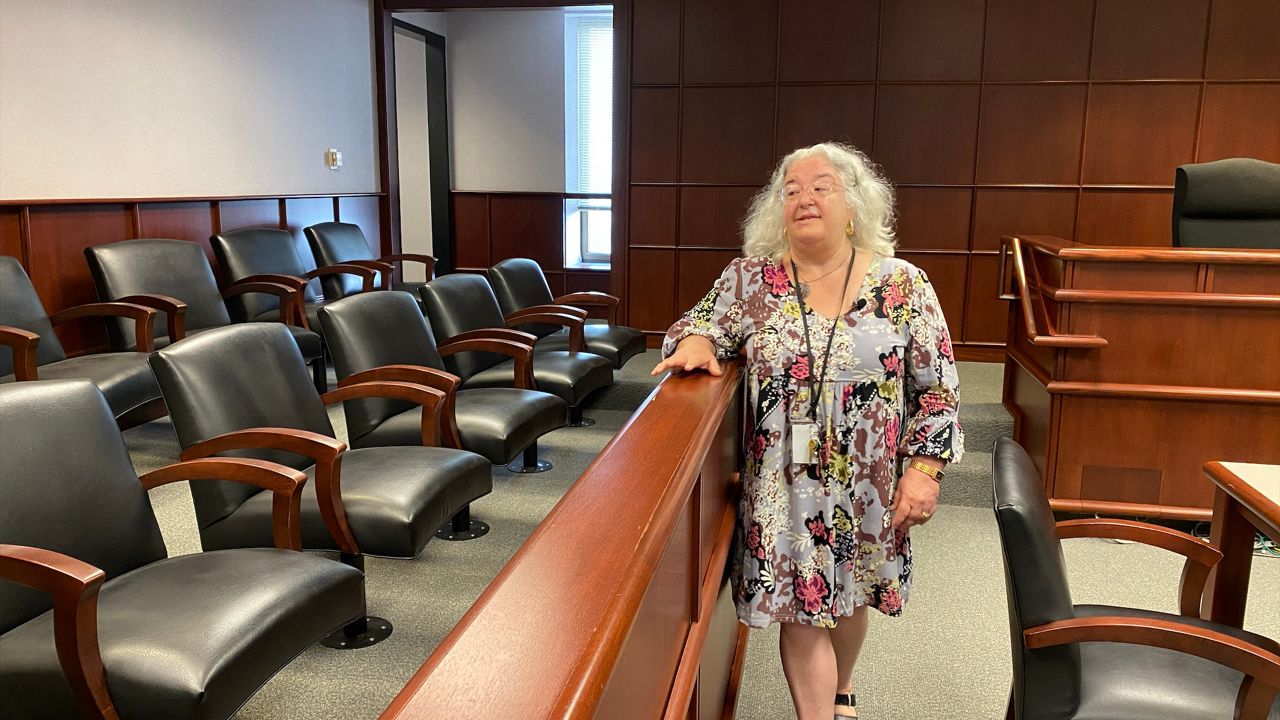RALEIGH, N.C. – A former juror said she considers her jury service one of the most important things she's ever done.
What you need to know
- July marks Juror Appreciation Month in North Carolina
- Jurors decide the fate of most court cases at the trial level, civil or criminal
- One former Wake County juror is now a court clerk in the same room where she once served on a jury
While studying at Meredith College in the 1980's, Gloria Holland received a summons for jury service. She headed to the Wake County Courthouse for jury selection. After a long process of screening questions, Holland was one of 12 jurors to be seated.
“The clerk would call our names, I got called, the judge would ask us a few general questions and then the attorneys questioned us, and I was fortunate, or unfortunate, however you may look at it, to be selected,” she said.
The case was a civil issue involving a woman who had suffered a severe back injury in a car crash. Holland said she and her fellow jurors spent two or three days listening to testimony from law enforcement and from medical experts. Besides listening to the testimony, Holland said she and her jurors noticed nonverbal cues, such as the plaintiff never once looking at the jury.

Gloria Holland now works as a court clerk in the same courtroom where she once served on a jury.
“I found it very exciting, especially at first,” she said. “It was a new experience and like anything else, I was all in.”
July marks Juror Appreciation Month in North Carolina. Under state law, you are required to report for jury service if you receive a summons. Employers are not required to pay their employees if they are serving on a jury, but many do, and they are forbidden from letting people go during that time.
There are two types of jury service. One is a petit jury, and they are called for trials, both for civil and criminal cases. Petit jurors receive a stipend of $12 for the first day of service and $20 for each day thereafter. If the trial lasts longer than five days, the stipend increases to $40 per day.
Grand juries decide whether to indict someone on criminal charges based on the evidence prosecutors present. They meet periodically for a period of 12 months and receive $20 per day while in jury service. They also are required to conduct an annual inspection of the county jail.

After listening to testimony in the civil trial for which she served, Holland and the other 11 jurors headed to the deliberation room. They had a verdict in a couple of hours, ruling in the defendant's favor. Holland said that's quick for a jury. During her time working in the legal field, she said she has sometimes seen trials last for a month or longer, with deliberations going as long as two days. When trials go that long, Holland said the jurors often bond with each other.
“I've even heard of some jurors, they've had reunions afterward, so you can make a lot of friends if you are here for some length of time,” she said.
Holland would go on to work for a law firm after graduating, often assisting in jury selection, before taking a job three years ago as a court clerk. It's her job to locate the files the judge needs and handle other logistical matters in the courtroom. She now works in the same courtroom where she served, sitting just yards away from the jury box she once occupied.
“Not many people get to do that,” she said. “They don't get to go the whole gamut, where they've sat here, they've sat at the tables assisting an attorney, and now they're sitting in a courtroom assisting a judge.”
Out of all of those roles, Holland said she considers her jury service the most important. She said it carries a tremendous responsibility and is a key way to preserve our system of government.
“Essentially, you have 12 people listening to an argument between two people with a mediator who says these are the rules, you follow these rules, the evidence comes in, and then 12 people decide on that evidence,” she said. “To see how all of those come together as a whole is a very rewarding experience.”



